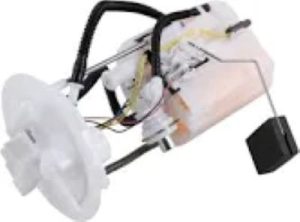What does a compatible fuel pump mean? Fuel pump compatibility means that a specific fuel pump is correct for the vehicle's engine, fuel system design, and the fuel type. By addressing these requirements, you are ensure to find a fuel pump that delivers the fuel at the proper pressure and flow rate. Typical fuel-injected engines will need pumps that produce pressure levels and flow rates in the range of 40 to 70 PSI and greater than 250 liters per hour (LPH) to support high-performance or turbocharged engines which require higher fuel demands. Without appropriate pressure or flow from a pump, you have lean fuel situations that can actually began to impede performance and trigger a misfire or mode the engine out.
Another important factor is fuel type compatibility, especially, in modern service stations, with more-efficient ethanol-blended fuels. Ethanol, present in many gasoline blends, is known to corrode fuel pump components not designed to be compatible with it, and can reduce pump life by as much as 30%. Diesel engines need different pumps with the capability of withstanding diesel's higher viscosity and lubricity without compromise. Those pumps may indeed be unsuitable for the fuel in use, as there was a large recall of thousands of vehicles back in 2018 that suffered pump failures as a result of even ethanol in gasoline, underlining the point of appropriate pump choice for the fuel type.

Compatibility is affected by connector and size specifications too: fuel pumps come with particular inlet and outlet sizes (8mm or 10mm): the size must match securely with the fuel lines. If you attempt to use a pump that does not match the specifications of the fittings you already have, you'll probably have leaks, drops in pressure, and lower efficiency overall. According to fuel system expert Ed China, “As with any other component in the fuel system, the correct size and connection type is just as important as pressure and flow capacity, so a compatible fuel pump is essential to system integrity.”
Electrical compatibility is another, since fuel pumps rely on 12-14 volt inputs. Electrical mismatches can result in loss of pump operation (or pump burnout), which can impact pump operation and engine function.
Choosing a compatible, high-quality Fuel Pump avoids compatibility issues related to pressures, fuel style, and electrical requirements that could lead to damaging performance problems and protecting the rest of the fuel system from premature wear.